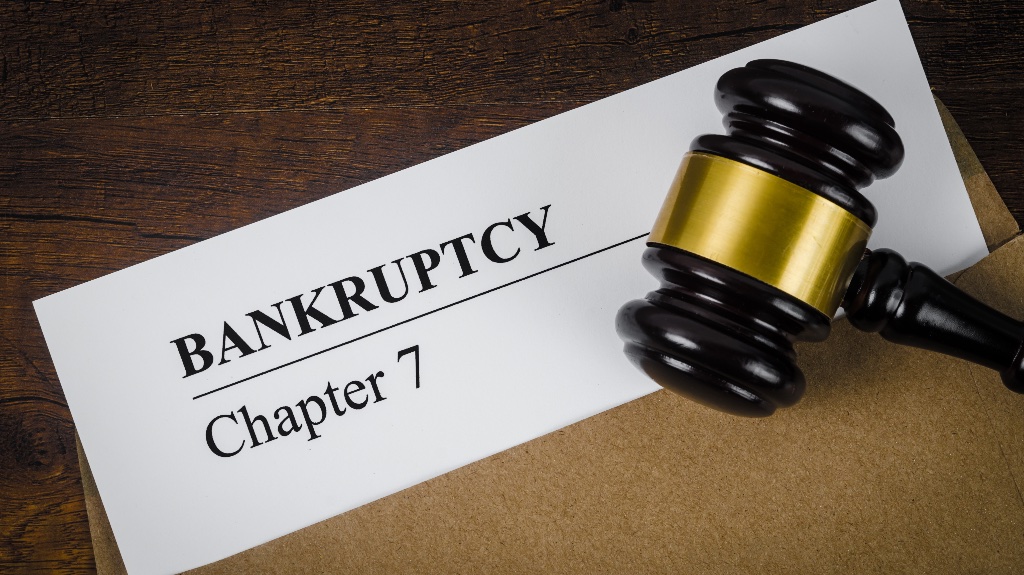Many people encounter financial difficulties at some point. If you are one of the many individuals in Georgia facing financial challenges caused by factors such as job loss, medical issues, or unexpected life events, considering bankruptcy may offer a pathway to relief.
In the following section, we will review the specifics of Chapter 7 bankruptcy, detailing its eligibility requirements, the process involved, and the potential benefits it can provide to help you regain your financial footing.

What Is Chapter 7 Bankruptcy?
Chapter 7 bankruptcy in Georgia is a legal process designed to help individuals eliminate most of their unsecured debt while giving them a fresh financial start. This process entails liquidating non-exempt assets, which are properties owned by the debtor that surpass the limits established by state exemption laws. Proceeds from selling any non-exempt assets are used to pay off creditors, ultimately eliminating remaining unsecured debts.
How Do You Qualify for Chapter 7 Bankruptcy?
To qualify for Chapter 7 bankruptcy, individuals must pass a “means test,” which assesses their financial situation. This test considers the debtor’s household size and monthly income in relation to the median income for a similar household in Georgia.
If the debtor’s income is below the median, they may qualify for Chapter 7 without further requirements. If it is above the median, additional calculations are performed to determine disposable income and whether they can pay back a portion of their debts through a Chapter 13 bankruptcy instead.
If eligible for Chapter 7, most consumer debts—including credit card balances, medical expenses, personal loans, and certain business debts—can be discharged, providing significant relief to the debtor. However, it is important to note that secured debts, such as those tied to mortgages and car loans, are treated differently. Debtors may need to negotiate independent arrangements with lenders to retain such assets while still benefiting from the bankruptcy process. In some instances, this may involve surrendering the property or reaffirming the debt, thereby keeping the asset but continuing to make payments on it.
How Do You File for Chapter 7 Bankruptcy in Georgia?
Filing for Chapter 7 bankruptcy in Georgia can initially seem daunting, but it can lead to significant relief from overwhelming debt. This process often begins with consulting an experienced bankruptcy attorney who can guide you through the complexities of filing. The attorney will then prepare and submit a detailed petition to the nearest bankruptcy court to initiate the process. This petition includes information such as your financial situation, your assets and liabilities, and details about your income and expenses.
Once your forms are filed, the court will implement an automatic stay. This legal order prohibits creditors from further contacting you or pursuing collection efforts, providing you with immediate relief from harassment. Following the filing of your petition, the case trustee assigned to your case will also convene a 341 meeting, also known as a “meeting of creditors.” During this meeting, your creditors will be invited to attend and can raise any objections regarding the discharge of your debts. While it is uncommon for creditors to attend, preparing for this meeting is crucial.
After the 341 meeting concludes, the trustee will review your case and proceed with the dissolution or liquidation of non-exempt assets, if applicable, aiming to repay creditors to the extent possible. Ultimately, if the process goes smoothly and there are no objections, you can expect to receive a discharge of your debts within a few months, allowing you to regain a fresh financial start.
To Learn More About Chapter 7 Bankruptcy, Contact Duncan & Brow Today
If you want to learn more about Chapter 7 bankruptcy and what it can mean for you and your family, contact Duncan & Brow today. Our experienced Georgia bankruptcy attorneys can review your questions one-on-one and provide you with the analysis you need.


